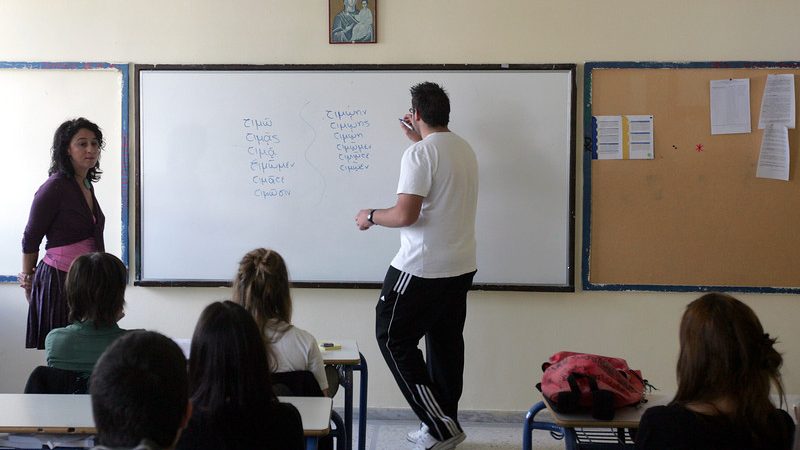
Alarming low birth rates shut down schools in Greece
The growing decline of Greece’s population, due to low birth rates and emigration, has resulted in closures of schools and kindergartens across the country, Greek media reported.
According to Greek newspaper Ethnos, because of low birth rates, the Greek government has decided for the 2019-2020 period to close 14 kindergartens and 9 primary schools in 19 municipalities in the region of Attica, whose capital is Athens.
In the 2009-2014 period, 1,705 school units closed in the entire country: 796 primary schools, 509 kindergartens and 400 secondary schools.
As the main reason for the closures, the government cited the lack of student resources, as well as local geographical conditions and the particularities of each region.
Stavros Petrakis, secretary-general of the Federation of Secondary School Teachers of Greece (OLME) told Ethnos that the demographic problem is “now at our doorstep”.
“Thousands of young people are moving abroad, as in Greece they can no longer work and create a family. The government must support motherhood not only with benefits but also with other incentives such as kindergartens, support for new parents, etc,” he said.
In a recent survey, the Foundation for Economic & Industrial Research (IOBE) emphasised an alarming situation.
It estimated that by 2035, the total number of pupils in schools will have decreased by as much as 29.2% to 1,050,000, compared to 1,480,000 in 2008.
Analysts suggest that the almost 10-year economic crisis has forced more than 400,000 young people abroad, dealing a severe blow to the country’s productivity.
‘Rebrain Greece’
Greece’s conservative New Democracy government (European People’s Party) has vowed to put an end to the so-called “brain drain” phenomenon and seeks incentives to keep young people in the country as well as “rebrain” the ones that have already left.
The ministry of employment recently launched the initiative “Rebrain Greece”, a pilot program of repatriation of Greeks with high scientific knowledge already working abroad.
Their minimum wage will be set at €3,000 and the state will subsidise 70% of it for one year, the ministry said. However, the company that will hire these people will be obliged to keep the employee with the same pay for at least another 12 months.
The project resembles the European Commission-led Youth Guarantee scheme, which has, however, completely failed at the EU level.
In April 2017, the EU Court of Auditors called on the Commission to create more realistic expectations for the programme and asked member states to do more to find jobs for young unemployed people.
New EU Commission chief Ursula von der Leynen has called on Croatia’s Dubravka Šuica, the Commission Vice-President for Demography and Democracy, to look at ways to support areas most affected by ‘brain drain’, including through the Youth Guarantee.
“You should present a Green Paper on ageing, launching a wide debate on long- term impacts, notably on care and pensions, and on how to foster active ageing. As part of this, you should assess whether our social protection systems are fit to deal with the needs of an ageing population,” her mission letter reads.

